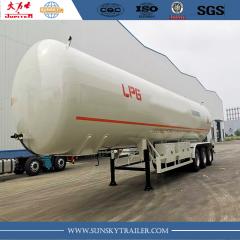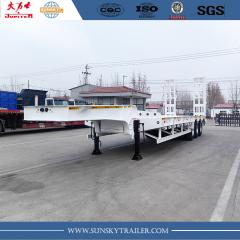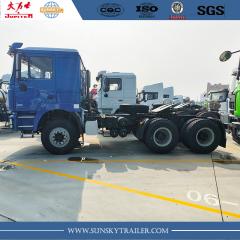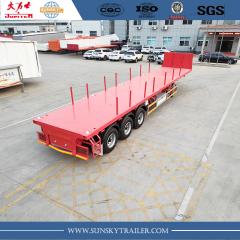-
 3 Axle Lpg Gas Tank Semi Trailer
3 Axle Lpg Gas Tank Semi Trailer
-
 Low Bed Trailer
Low Bed Trailer
-
 SHACMAN F3000 Tractor Truck
SHACMAN F3000 Tractor Truck
-
 Flatbed Pillar Trailer
Flatbed Pillar Trailer
SUNSKY VEHICLE, a manufacturer of flatbed semi-trailers, has found that the Flatbed Pillar Trailer i...
1.Check the sidewall and tread blocks for damage regularly
Your adventures can take you across all kinds of terrain — through the mountains, across the coast, past the Prairies. After you’ve driven in rocky or rough areas, be sure to have yourself or a tire service expert inspect the sidewalls and tread as well as valves and caps. You’re looking for nails and other objects, cuts and bulges, and signs of cracking andweathering.
Some of the best RV tires will be made with scuff guards to help resist sidewall damage from curbing when you’re in the city and in campgrounds, but those sidewall shoulders in particular aren’t always a match for the debris they meet on summer roads.
2.Inflate your tires to the recommended PSI so you can enjoy optimum performance
Under-inflation can cause poor handling, increased wear or irregular wear,decreased fuel economy and even structural damage. Over- inflation can also cause uneven wear as well as compromise your traction, braking, handling and a bumpy, noisy ride.
WHEN TO CHECK AIR PRESSURE?
before and after short distance trips, before and after storing your trailer or RV, and once a month in the off-season.
For the most accurate reading, check your air when your tires are cold (haven’ t been driven for a few hours, since temperature fluctuations
lead to pressure fluctuations) and with a truck tire gauge that features a dual-angled head for dual wheels.
If your adventure brings you to high altitudes or temperature extremes, check your inflation more regularly because both can have a big impact on air pressure.
THE RIGHT AIR PRESSURE
Your sidewall will tell you your tires’ maximum carrying capacity as well as the air pressure amount (PSI) needed to carry that maximum load.
3.Maintain an even load and never exceed Gross Vehicle Weight Rating (GVWR)
When your RV tires or trailer tires are supporting an even load and an acceptable weight, you’ll see better handling, braking, fuel economy, tread life, and tread wear.For best results, pack up your RV or trailer with everything you’re taking
—groceries,kids, supplies, suitcases,bikes,camping supplies,and anything you might be towing. Then, visit a weigh station so you can get an accurate reading and make sure you’re not exceeding the gross vehicle weight rating (GVWR). You’ll find your GVWR in your owner’s manual.
4.Balance and rotate your tires regularly
If your tires are out of balance, you’ll see cupping and uneven wear.
Have your wheels balanced when you’re mounting new tires, when tires and wheels are being rotated, when you’ve had a flat repaired, and any time a tire has been removed.
Your tire experts can also advise you about rotating your RV or trailer tires. Your owner’s manual will recommend the rotation pattern that’s best for your vehicle.
5.Storage
What your RV tires experience in the off-season is just as important as how they’re taken care of during road trip season. Even though many RV
tires now come with advanced weather and crack resistant rubber compounds, you can still extend the life an RV tire significantly with proper storage.
Related Readings: LNG Tank Semi-Trailer Transport Semi-trailer




